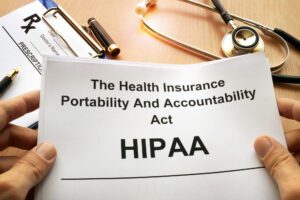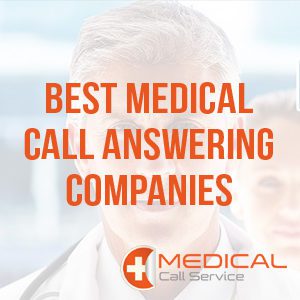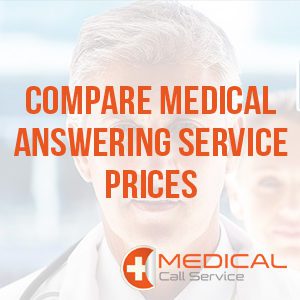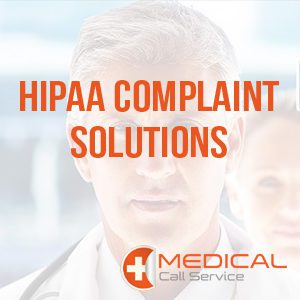
Can Medical Answering Services Protect Your Practice From HIPAA Violations?
In the ever-evolving landscape of healthcare, the confluence of technological advancements and stringent regulations has given rise to various challenges for medical practices. One such challenge is the protection of patient information, particularly in the age of digital communication. Enter medical answering services – a modern solution designed to ensure efficient communication while maintaining patient confidentiality. But can these services truly protect your practice from HIPAA violations? Let’s dive deep to find out.
What is HIPAA?
The Health Insurance Portability and Accountability Act (HIPAA) is a U.S. legislation introduced in 1996, aimed at ensuring the protection of patient health information. Among its provisions, it outlines the permissible uses of personal health information and establishes penalties for violations.
Why is HIPAA Compliance Crucial?
Non-compliance can lead to hefty fines, legal ramifications, and a tarnished reputation for healthcare providers. With cyber threats and data breaches on the rise, ensuring compliance isn’t just about avoiding penalties – it’s about ensuring trust and maintaining the integrity of the medical profession.
How Can Medical Answering Services Help?
Medical call centers, when implemented correctly, can offer several layers of protection against potential HIPAA violations:
- Secure Data Transmission: Leading answering services use encrypted communication lines, ensuring that all patient information shared during calls remains confidential.
- Trained Professionals: Operators in HIPAA-compliant answering services undergo rigorous training. They’re equipped with knowledge about patient privacy regulations, ensuring they handle information with the utmost discretion.
- Strict Data Retention Policies: These services have stringent data retention policies in place. Information is not stored indefinitely; instead, it’s held for a duration compliant with HIPAA requirements and then securely destroyed.
- Automated Responses: Automated systems can be designed to offer information without human intervention, reducing the risk of human error – a common cause of inadvertent HIPAA breaches.
- Auditing and Monitoring: Regular audits ensure that all protocols are being followed. Any discrepancies can be identified and rectified promptly.




Factors to Consider When Choosing a Service
While medical answering services offer a promising solution, it’s essential to choose the right one. Here are some considerations:
- Certifications: Ensure that the service is certified and regularly audited for HIPAA compliance.
- Customization: The service should be customizable to fit the unique requirements of your practice.
- 24/7 Availability: Medical emergencies don’t adhere to business hours. A round-the-clock service ensures no communication gaps.
- Reputation: Opt for services with a strong track record and positive reviews from other healthcare providers.
The Broader Picture: A Holistic Approach to Compliance
While medical answering services can play a pivotal role in maintaining HIPAA compliance, they’re just one piece of the puzzle. It’s essential for practices to:
- Educate Staff: Regular training sessions should be conducted to ensure all staff members are up-to-date with HIPAA regulations.
- Implement Secure Technologies: From EHR systems to communication tools, ensure that every technological component adheres to the highest security standards.
- Regular Audits: Self-audit your practice regularly. Identify potential weaknesses and address them proactively.
Medical answering services, when chosen wisely and integrated effectively, can indeed act as a formidable barrier against HIPAA violations. However, it’s crucial for healthcare providers to view them as part of a holistic strategy – one that’s rooted in continuous education, technological vigilance, and an unwavering commitment to patient privacy. By doing so, practices can not only avoid the pitfalls of non-compliance but also foster an environment of trust and credibility in the eyes of their patients.




What Happens When HIPAA is Violated?
HIPAA violations are no small matter. They can have a range of repercussions for healthcare entities, both in terms of financial penalties and broader implications for reputation and trust. Before we delve into how medical answering services can help, it’s crucial to understand the consequences of such violations.
The Consequences of HIPAA Violations
- Financial Penalties: Fines for HIPAA non-compliance can range from $100 to $50,000 per violation, with an annual maximum of $1.5 million. These figures can quickly escalate, especially if a breach affects multiple patients.
- Criminal Charges: Serious violations, especially those involving intentional neglect or malicious intent, can result in criminal charges. Penalties can range from fines to imprisonment, depending on the severity.
- Loss of Trust: Perhaps one of the most damaging consequences is the loss of patient trust. If patients feel their data isn’t safe, they might choose to seek care elsewhere.
- Operational Setbacks: Data breaches often require a considerable amount of time and resources to address, from notifying affected parties to managing public relations crises.
- Increased Scrutiny: Once a violation occurs, healthcare entities may be under increased scrutiny from regulatory bodies, potentially making operations more challenging.
How Can Medical Answering Services Help in Case of HIPAA Violations?
While medical answering services primarily aim to prevent violations, they can also play a pivotal role in addressing concerns if a breach occurs.
- Immediate Notification: Many medical answering services have systems in place to immediately alert healthcare providers if they detect any unusual activity or potential breach. Quick notification can lead to faster response times, potentially mitigating the damage.
- Detailed Logging: These services often maintain detailed logs of all interactions. In the event of a violation, these logs can provide essential insights into what went wrong, helping to pinpoint the source and scope of the breach.
- Expert Assistance: Many leading answering services have experts on standby to assist healthcare entities in the aftermath of a violation. Their experience in such matters can be invaluable in navigating the complex regulatory landscape and deciding on the best course of action.
- Patient Communication: In situations where a breach affects patient data, clear communication is essential. Medical answering services can help facilitate this, providing consistent and accurate information to affected parties.
- Review and Reinforcement: After a violation, it’s vital to review systems and protocols to prevent future breaches. Answering services can assist in this process, identifying potential weaknesses and recommending enhancements.




Prevention is the Best Cure
While it’s reassuring to know that medical answering services can assist in the aftermath of a HIPAA violation, the real value they offer lies in prevention. By ensuring secure and compliant communication processes, they help healthcare entities avoid the costly and damaging consequences of data breaches in the first place.
HIPAA violations can be a daunting challenge for any healthcare provider. However, with the right partners and tools, including a reliable medical answering service, entities can navigate this complex terrain with greater confidence. While these services play a role in the aftermath of breaches, their true value is in their ability to offer proactive solutions, ensuring that patient data remains safe and that healthcare providers can focus on their primary mission: delivering exceptional care.
Cost of Hiring a HIPAA Compliant Medical Answering Service
Hiring a HIPAA compliant medical answering service is an essential investment for many healthcare providers, ensuring patient confidentiality while maintaining efficient communication. The costs associated with these services can vary widely based on various factors. Let’s delve into the intricacies of the pricing structure and what you might expect to pay.
Factors Influencing Cost
- Volume of Calls: One of the primary determinants of cost is the volume of calls your practice receives. Some services charge per call, while others offer package deals based on anticipated call volume.
- Hours of Operation: Do you require 24/7 coverage, or just after-hours and weekends? Round-the-clock services typically come at a higher price point.
- Features and Customization: Basic answering services may handle calls and messages, but if you require appointment scheduling, prescription refill requests, or other specialized services, expect to pay more.
- Location: The cost of services might vary based on whether you’re outsourcing domestically or internationally. Local services may charge more, but they often have a better understanding of local regulations and patient expectations.
- Contract Duration: Some providers offer discounts for longer-term contracts as opposed to monthly agreements.
- Setup Fees: Initial setup, which might include integrating the service with your existing systems or training the service on your specific protocols, may incur additional fees.
Average Cost Breakdown
Given the variability in services and specific needs, providing a broad average can be challenging. However, as a general guideline:
- Basic Packages: These might start as low as $50 to $200 per month. They would typically include a set number of calls, with additional fees per call once that threshold is exceeded.
- Mid-Tier Packages: For a more comprehensive package that might include additional features, expect to pay anywhere from $200 to $800 per month.
- Premium Services: For large practices or hospitals requiring extensive features, integration, and the highest call volumes, monthly fees can exceed $1,000.
- Per Call Charges: On a per-call basis, fees might range from $0.75 to $2.00 per call, depending on the service’s complexity.
- Setup Fees: These can range from being waived entirely to up to $500 or more, depending on the service’s complexity.




Additional Considerations
- Overage Charges: It’s essential to understand the cost implications if you exceed the agreed-upon call volume. Some services might have steep overage fees.
- Trial Periods: Some providers might offer a trial period, allowing you to gauge the service’s effectiveness before committing long term.
- Hidden Fees: Always scrutinize contracts for any hidden fees or charges that might not be evident initially.
The cost of hiring a HIPAA compliant medical answering service can vary significantly based on your specific needs and the provider’s offerings. It’s crucial to balance cost considerations with the quality and reliability of the service. Remember, this service will be an extension of your practice, and its effectiveness can influence patient satisfaction and trust. Always do thorough research and ask for references or reviews before committing to a particular provider.
What Makes a Medical Answering Service HIPAA Compliant?
The Health Insurance Portability and Accountability Act (HIPAA) sets the standard for protecting sensitive patient data. Therefore, medical answering services, which often deal with patient information, must adhere to these standards to ensure they don’t violate HIPAA regulations. Here’s a look at the critical components that make a medical answering service HIPAA compliant:
1. Secure Data Transmission
A HIPAA compliant medical answering service must ensure that any data transmitted, whether it be through phone, email, or electronic messaging, is done securely. This might involve encryption to ensure that unauthorized individuals cannot intercept or decipher the information.
2. Access Controls
Only authorized personnel should have access to patient information. This means there should be robust password policies, two-factor authentication, and other measures to ensure that only those with the right credentials can access the data.
3. Data Storage and Backup
Data storage is another crucial component. The information should be stored in secure servers, possibly with encryption at rest. Additionally, there should be secure backup systems in place to prevent data loss and to facilitate recovery in the event of any unforeseen circumstances like cyber-attacks.
4. Regular Audits
Regular audits ensure that the answering service adheres to all HIPAA regulations. These audits might look into call logs, access records, and other relevant data to ensure compliance and detect any potential breaches.
5. Training and Awareness
All personnel within the medical answering service should undergo regular training on HIPAA regulations. They need to understand the importance of protecting patient data and be aware of the procedures and best practices to ensure compliance.
6. Business Associate Agreement (BAA)
Under HIPAA, any third-party service that handles protected health information (PHI) on behalf of a healthcare provider is considered a business associate. Medical answering services fall under this category. As such, they are required to sign a Business Associate Agreement (BAA) with the healthcare provider, outlining their responsibilities concerning PHI.




7. Incident Response Plan
Even with the best measures in place, there’s always a risk of a data breach or non-compliance incident. A HIPAA compliant service will have an incident response plan that outlines the steps to take in the event of a breach, ensuring swift action to mitigate risks and inform affected parties.
8. Physical Security
While much of HIPAA compliance revolves around digital data, the physical security of the answering service’s premises is also vital. This could involve security measures like access cards, security personnel, and CCTV surveillance to prevent unauthorized physical access.
9. Data Retention and Destruction
HIPAA regulations also cover how long patient data should be retained and the methods used to destroy it once it’s no longer needed. A compliant answering service will have policies ensuring data is disposed of securely, making it unrecoverable.
10. Continuous Updates
HIPAA regulations and technology are continually evolving. As such, a compliant medical answering service will stay updated on any changes in regulations and adopt the latest security technologies and best practices.
In an era where data breaches are increasingly common and the consequences of non-compliance more severe than ever, it’s imperative for medical answering services to adhere to HIPAA standards rigorously. When evaluating potential services for your practice, understanding these critical components can help ensure you choose a partner that safeguards patient data and ensures your practice remains compliant.




Top 10 Medical Answering Services in 2023
Medical answering services play a pivotal role in managing patient communications for healthcare providers. In 2023, as the industry continues to evolve and the importance of HIPAA compliance becomes even more pronounced, several services have stood out as leaders. Here are the top 10 medical answering services this year, recognized for their impeccable service quality, technological capabilities, and strict adherence to compliance standards.
1. MedConnectUSA
Renowned for its specialized training for staff, MedConnectUSA offers services tailored to different healthcare sectors, ensuring that each patient’s needs are met with accuracy and professionalism.
2. Stericycle Communication Solutions
A significant player in the industry, Stericycle offers a range of patient communication services, including appointment scheduling and reminders, all while maintaining stringent HIPAA compliance standards.
3. Signius Communications
Signius offers 24/7 live answering services, with a focus on customizable solutions. Their cutting-edge technology and well-trained staff have earned them a significant clientele in the healthcare sector.
4. AnswerNet
Recognized for its comprehensive service suite, AnswerNet provides not just medical answering services but also virtual receptionist solutions, ensuring a holistic approach to patient communication.
5. MAP Communications
Boasting years of industry experience, MAP Communications offers bilingual services and integrates seamlessly with many existing healthcare systems, facilitating smooth communication flow.
6. PatientCalls Medical Answering Service
A favorite among many healthcare practitioners, PatientCalls is known for its patient-centric approach. Their encrypted messaging and strict adherence to HIPAA guidelines ensure patient data remains secure.
7. SAS (Specialty Answering Service)
From large hospitals to solo practitioners, SAS caters to a diverse clientele with its range of services. Their technology-driven solutions and strict training protocols make them a favorite.
8. Sunshine Communication Services, Inc.
Sunshine Communication prides itself on offering personalized solutions to healthcare providers. Their services range from after-hours answering to disaster recovery, making them a versatile choice.
9. Call Experts
With decades in the industry, Call Experts combines its vast experience with the latest technology to offer top-notch services. They have specialized solutions for different healthcare sectors, ensuring tailored services for each client.
10. Moneypenny
Although a more recent entrant compared to others, Moneypenny has quickly risen through the ranks. Their focus on employing the latest AI technology alongside human expertise ensures efficient and effective patient communication.




Choosing the right medical answering service is pivotal for any healthcare provider. It not only ensures smooth communication with patients but also maintains the trust they place in the provider by safeguarding their data. The top 10 services listed above have showcased excellence in various aspects of the industry, making them the go-to choices in 2023.
Protecting Patient Information Builds Rapport with Patients
In the modern healthcare landscape, the protection of patient data isn’t just a matter of regulatory compliance; it’s also about building and maintaining trust with patients. Every individual entrusts their healthcare provider with their most personal and sensitive information, from medical histories to financial details. Ensuring the safety and confidentiality of this data is fundamental in nurturing a lasting relationship. Here’s how protecting patient information directly correlates to building rapport:
Transparency and Trust
Patients want to know that their information is being handled with care. By demonstrating a commitment to safeguarding their data, healthcare providers showcase a transparent approach that naturally fosters trust. When patients are confident that their information won’t be mishandled or leaked, they are more likely to be forthcoming, leading to more accurate medical histories and better overall care.
Reducing Anxiety
The mere thought of one’s personal and medical information being vulnerable can be a source of anxiety for many. By implementing strong data protection measures and communicating them effectively to patients, healthcare providers can alleviate such concerns, ensuring that patients feel safe and protected during their interactions.
Building a Positive Reputation
In an age where news about data breaches spreads rapidly, maintaining a spotless record when it comes to data protection can bolster a healthcare provider’s reputation. Patients often discuss their experiences with friends and family or even leave reviews online. Knowing that a healthcare provider prioritizes data protection can lead to positive word-of-mouth and increased referrals.
Enhancing Patient Engagement
When patients trust a healthcare provider, they are more likely to engage actively in their care process. This could manifest as following medical advice more diligently, being more responsive to communication, or participating in healthcare programs. This active engagement often leads to better health outcomes and a stronger patient-provider relationship.
Cultivating Long-term Relationships
Healthcare isn’t a one-time transaction. It’s a lifelong journey. Patients who trust their providers are more likely to return for follow-ups, screenings, and other medical services. Protecting patient data lays the foundation for this continued relationship, ensuring that patients feel comfortable returning to a provider they trust.
Demonstrating Professionalism
Finally, a robust approach to data protection demonstrates a high level of professionalism. It shows that the healthcare provider is updated with the latest in medical technology and regulations, instilling further confidence in patients about the overall quality of care they will receive.




The protection of patient data is a multifaceted issue that goes beyond just compliance. It’s a testament to a healthcare provider’s commitment to their patients, reflecting the value they place on the patient-provider relationship. By prioritizing data security, healthcare providers not only avoid regulatory complications but also foster a nurturing environment where patients feel valued, heard, and protected. In the long run, this emphasis on data protection can only serve to enhance patient rapport, trust, and loyalty.
Getting Started with a Medical Answering Service
Choosing to integrate a medical answering service into your healthcare practice is an insightful decision, one that can improve patient satisfaction, streamline your administrative processes, and enhance data protection. However, the transition can seem daunting if you’re unfamiliar with how these services work. To help you navigate this process, here’s a step-by-step guide on how to get started:
1. Identify Your Needs
Before diving in, it’s crucial to identify the specific needs of your healthcare practice.
- How many calls do you receive on average per day?
- Are there peak times when the call volume is especially high?
- Do you require appointment scheduling or just call answering?
- Would you benefit from multilingual services?
By determining your exact requirements, you can select a service that aligns perfectly with your needs.
2. Research Potential Services
Not all medical answering services are created equal. Look for reputable companies that specialize in medical answering, as they’ll be more attuned to the nuances of healthcare communication. Consider the “Top 10 Medical Answering Services in 2023” section earlier in this blog as a starting point.
3. Check for HIPAA Compliance
HIPAA compliance is non-negotiable. Ensure that any service you consider is fully compliant with these regulations, as this protects both your patients and your practice from potential legal issues.
4. Request Demonstrations or Trials
Many reputable answering services offer demonstrations or trial periods. This allows you to test their platform, evaluate the responsiveness and professionalism of their staff, and ensure that their services align with your expectations.
5. Train Your Team
Once you’ve selected a service, ensure that your in-house team is fully aware of how it works. This might involve training sessions on the new communication protocols, understanding the data flow, or knowing how to access messages and information passed on by the answering service.




6. Inform Your Patients
Patients should be informed about any changes in how their calls will be managed. This can be communicated via email, text messages, or even a simple notification on your website. By keeping patients in the loop, you help set expectations and maintain trust.
7. Monitor and Adjust
In the initial stages, closely monitor the service to ensure it meets your needs and maintains the level of professionalism and care your patients expect. Don’t hesitate to provide feedback to the answering service if adjustments are needed.
8. Review Regularly
Even after successful integration, it’s wise to periodically review the service’s performance. Are they still meeting your needs as your practice grows? Are there new features or tools available that could benefit your practice? A regular review ensures that you’re always getting the best from your medical answering service.
Transitioning to a medical answering service can seem like a significant change, but with the right approach, it can be smooth and incredibly beneficial. By prioritizing HIPAA compliance, choosing a reputable service, and ensuring clear communication with both your team and your patients, you’re well on your way to streamlining your practice’s communication processes and providing even better care for your patients.

Leave a Reply